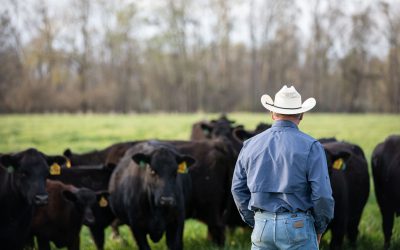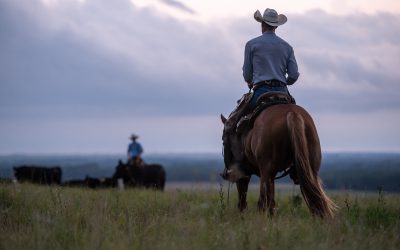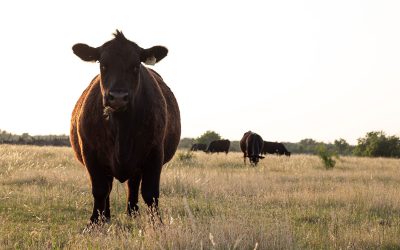
Nice to Meat Ya: Alberto Diaz
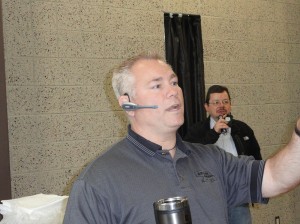
“If they make it seem easy and you don’t notice the translator, then they’ve done a good job,” the Mexico City, Mexico, native says.
But when I was just new to CAB, I did take notice. Only because I was completely fascinated by the global reach of this brand and how they get meat sales people from a dozen or more different countries to experience U.S. ranches, feedlots and packing plants.
At the Round Up Seminar I attended in Colorado, Alberto was the vehicle that helped foster understanding.
We know what he does, listen to English and then restate the message in Spanish. But just how does he do that?

Usually he speaks into a microphone that’s synched with headsets for the international guests. Alberto squares in on the speaker. “I’m 100% listening to the words,” he says, noting that there is no time for other distractions.
There’s only a 3 to 5 second delay between the speaker and him repeating it.
“Any more than that and I would forget what they said. Any less than that and I wouldn’t be able to arrange the words,” he says, citing an example: in English we’d say, “The big dog.” In Spanish, that order would be, “The dog big.”
The beef industry is as dependent on jargon as any other, with many specialized terms, but he doesn’t bring an ag background to the profession.
“If I had to have that, a translator would also need to be a physician to translate in the medical field, a lawyer to translate law conferences,” he laughs.
But some advanced preparation helps. An agenda will allow him to do web searches and become familiar with the topic, and a Power Point in advance is even better.
But he has learned about the U.S. beef industry.
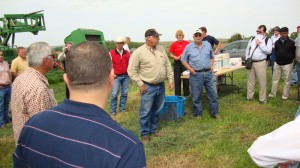
“Everything is so fine-tuned and synchronized and dealt with in so much detail,” Alberto says. That’s why it’s so important for our international customers to connect—so they can be sure for themselves.
“They can see the great care that CAB and U.S. industry has for their product.”
At one time he might have considered a linguist’s focus, teaching English at a university, but does he dream of any other jobs today?
“Thanks, but no thanks,” is his quick reply.
It’s a love of language, and finding a calling where he’s able to use that to serve others–that’s what keeps Alberto engaged.
“When you start learning a language you will never finish.”
May your bottom line be filled with black ink,
Miranda
PS–We’re more than halfway through with our 30-day series. Check out these other beef industry professionals in days 1-17:
- Introduction: Nice to Meat Ya
- Day 1: Ashley Pado
- Day 2: Scott Redden
- Day 3: Jesse Stucky
- Day 4: Bridget Wasser
- Day 5: Amanda Barstow
- Day 6: Josh Moore
- Day 7: Ruth Ammon
- Day 8: Bill Tackett
- Day 9: Dan Chase
- Day 10: Danielle Foster
- Day 11: Eric Mihaly
- Day 12: Jennifer Kiko
- Day 13: Mark Morgan
- Day 14: Meg and Matt Groves
- Day 15: Rod Kamph
- Day 16: Jonnie Schreffler
- Day 17: Brent Eichar
You may also like
Progress from small steps
Every day is a chance to learn and get better. Thousands of others like my new friends in Alabama are taking steps to meet the shifts in consumer demand, and to know more. Small steps in the right direction can start now. Even if it’s just recording a snapshot of where you are today, a benchmark for tomorrow.
Not perfect, but working to get better
The CAB Cattleman Connection team heard its name called more than once in the virtual ceremonies, and each time came a sense of personal accomplishment, but even better: confirmation that we’re getting better at our craft. I hope that means we’re doing a better job for you.
Beefed up findings
Frank Mitloehner presents his findings on the animal ag sector’s impact on global warming. He explains how cattle counterbalance other fossil fuel sectors, proving that cattle are a solution and not a threat.

